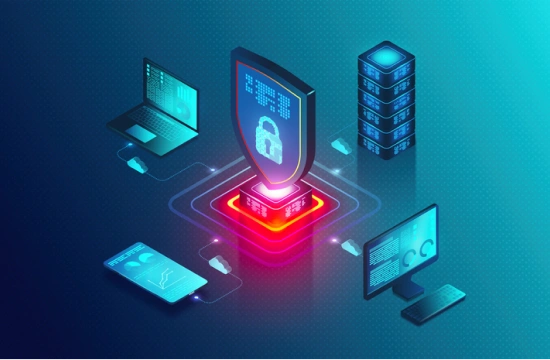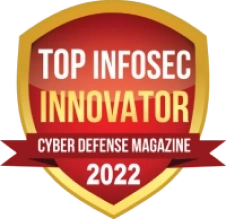Why Endpoint Security is Essential for Modern Cybersecurity
In an era where cyber threats are more advanced and persistent than ever, endpoint security plays a crucial role in safeguarding your organization’s digital assets. As endpoints like laptops, smartphones, and IoT devices become primary entry points for attackers, a robust endpoint security strategy ensures these vulnerable touchpoints are protected. By detecting, preventing, and responding to threats in real time, endpoint security not only fortifies your network but also mitigates the risks of data breaches, ransomware attacks, and compliance failures. Without it, your overall cybersecurity defense is incomplete, leaving your business exposed to potentially devastating consequences.
How Endpoint Security Works: Key Components and Processes
Endpoint security operates as a multi-layered defense system designed to protect devices—also known as endpoints—within a network from cyber threats. It encompasses a range of tools, techniques, and processes that work together to secure endpoints such as desktops, laptops, servers, mobile devices, and IoT devices. These endpoints are prime targets for cyberattacks, making comprehensive protection essential for maintaining a secure IT environment. Here’s how endpoint security works and the key components that make it effective:
- Threat Detection & PreventionThe primary function of endpoint security is to detect and prevent threats before they can infiltrate the network. It employs multiple detection methods, including signature-based detection for known threats and behavior-based detection for unknown or emerging threats. By analyzing files, processes, and network connections in real time, endpoint security solutions can identify and block malicious activity at the endpoint level, preventing potential breaches. Advanced solutions also incorporate AI and machine learning to improve detection accuracy and predict potential attack patterns.
- Endpoint Protection Platform (EPP)The Endpoint Protection Platform (EPP) acts as the foundation of endpoint security. It consolidates traditional security measures like antivirus, anti-malware, firewall, and intrusion prevention systems into a single platform. EPP continuously monitors endpoints for vulnerabilities and suspicious activities, leveraging both cloud-based and on-device resources to provide comprehensive protection. EPP’s focus is on prevention, offering protection against malware, phishing attempts, and unauthorized access.
- Endpoint Detection & Response (EDR)Endpoint Detection & Response (EDR) is a critical component of modern endpoint security. Unlike EPP, which primarily focuses on prevention, EDR is designed for rapid detection, investigation, and response to complex threats that have already breached the endpoint. EDR tools continuously collect and analyze endpoint data, enabling security teams to trace the origin and progression of an attack. By providing deep visibility into endpoint activities, EDR helps identify suspicious behavior, assess risks, and initiate automated or manual responses, such as isolating compromised devices or blocking malicious processes.
- Advanced Threat IntelligenceThreat intelligence integration is a key component that enhances endpoint security’s ability to respond to emerging threats. By tapping into global threat intelligence feeds, endpoint security solutions can stay updated on the latest malware strains, zero-day vulnerabilities, and attack patterns. This proactive approach helps organizations quickly adapt to new threats, fortifying their defense mechanisms and reducing the window of exposure.
- Application Control & Device ManagementAnother crucial aspect of endpoint security is application control and device management. Application control ensures that only authorized applications can run on devices, effectively blocking potentially harmful software. This minimizes the risk of attackers exploiting vulnerable applications to gain unauthorized access. Device management capabilities help monitor endpoint health, enforce security policies, and ensure compliance with organizational standards. These features are especially valuable in environments where remote or mobile work is common.
- Data Encryption & Access ControlData encryption and access control further enhance endpoint security by safeguarding sensitive information. Encryption ensures that even if data is intercepted or accessed by unauthorized users, it remains unreadable without the correct decryption key. Access control enforces strict user authentication measures, such as multi-factor authentication (MFA),to ensure that only authorized users can access endpoints and the data stored on them. Together, these measures provide an additional layer of defense, reducing the risk of data breaches and unauthorized access.
- Automated Threat ResponseModern endpoint security solutions incorporate automated response capabilities to minimize response times and prevent the spread of attacks. Automated responses can include isolating infected endpoints, terminating malicious processes, and blocking compromised network connections. By automating responses, organizations can contain threats more quickly, reducing the potential damage and allowing security teams to focus on investigating more complex threats.
- Centralized Management & VisibilityEffective endpoint security requires centralized management to monitor, manage, and secure endpoints across the organization. Centralized dashboards provide visibility into endpoint health, ongoing threats, and response activities, enabling security teams to maintain real-time awareness of the organization's security posture. Centralized management also allows for efficient policy enforcement, ensuring that all endpoints adhere to security protocols and compliance requirements.
- Compliance & ReportingLastly, endpoint security plays a critical role in regulatory compliance. Organizations must adhere to strict data protection standards like GDPR, HIPAA, and PCI-DSS. Endpoint security solutions provide compliance reporting and auditing tools that document security measures, identify vulnerabilities, and demonstrate compliance with industry regulations. This not only helps avoid costly fines but also builds trust with clients and stakeholders by ensuring robust data protection measures are in place.
Benefits of Implementing Endpoint Security for Your Business
Implementing endpoint security is no longer optional in today’s fast-paced digital landscape. With endpoints serving as the primary access points to networks and sensitive data, they are prime targets for cybercriminals. A robust endpoint security strategy offers numerous advantages, safeguarding not just individual devices but also the organization as a whole. Here are the key benefits of implementing endpoint security for your business:
- Comprehensive Threat ProtectionEndpoint security provides a multi-layered defense that protects your organization from a wide range of threats, including malware, ransomware, phishing attacks, and zero-day vulnerabilities. By incorporating advanced threat detection and prevention technologies, endpoint security identifies and neutralizes threats before they can cause harm. This level of protection significantly reduces the risk of data breaches, system compromises, and operational disruptions, ensuring a secure business environment.
- Enhanced Visibility and ControlEndpoint security solutions offer centralized monitoring and management, providing greater visibility into endpoint activities across the organization. Security teams can easily track the status of endpoints, detect anomalies, and respond to suspicious behaviors in real time. This centralized control not only helps in detecting threats more quickly but also enables consistent policy enforcement, ensuring that all devices comply with security protocols. With clear insights and actionable data, businesses can proactively address security gaps before they escalate into critical issues.
- Improved Data Security and PrivacyData breaches can have devastating financial and reputational consequences. Endpoint security protects sensitive business data by integrating encryption, access control, and data loss prevention measures. These components ensure that only authorized users can access data and that all information is encrypted, even if an endpoint is compromised. This strong emphasis on data protection helps businesses meet compliance requirements and fosters trust with clients, partners, and stakeholders.
- Reduced Downtime and Business DisruptionsCyber attacks can lead to significant downtime, impacting productivity, customer service, and revenue. Endpoint security minimizes these disruptions by rapidly detecting, containing, and mitigating threats. Automated responses can isolate compromised endpoints, block malicious processes, and restore systems to a secure state, often without manual intervention. This swift response helps maintain business continuity, ensuring that operations run smoothly and securely.
- Cost-Effective Cybersecurity StrategyImplementing endpoint security can lead to significant cost savings by preventing costly data breaches, ransomware payouts, and regulatory fines. By reducing the likelihood of security incidents, businesses can avoid the high expenses associated with incident response, data recovery, and legal consequences. Additionally, the centralized management offered by endpoint security simplifies security operations, reducing the need for extensive manual labor and freeing up resources for strategic initiatives.
- Scalability for Growing BusinessesAs businesses grow, so do their network endpoints, which can include new devices, remote workers, and cloud-based applications. Endpoint security solutions are built to scale with your organization, providing consistent protection regardless of the number of endpoints or their locations. This scalability ensures that expanding businesses can maintain security across all devices, even in hybrid or fully remote work environments, without compromising performance or protection.
- Protection for Remote and Mobile WorkforcesWith the rise of remote and mobile work, endpoint security is critical for maintaining secure connections beyond the traditional office environment. By extending protection to endpoints outside the corporate network, endpoint security ensures secure access to company resources from any location. Features like secure VPNs, device compliance checks, and remote access controls help safeguard sensitive information and maintain security standards for remote teams, enabling secure collaboration and productivity.
- Faster Threat Detection and ResponseModern endpoint security solutions integrate advanced technologies like artificial intelligence and machine learning to improve threat detection speed and accuracy. By analyzing large volumes of data in real time, these solutions can identify anomalies, detect potential threats, and initiate responses within seconds. This rapid detection and response reduce the window of vulnerability, preventing attackers from moving laterally across the network and causing further damage.
- Support for Compliance and Regulatory RequirementsMany industries have strict regulations governing data protection, including GDPR, HIPAA, and PCI-DSS. Endpoint security helps businesses comply with these regulations by enforcing security policies, encrypting sensitive data, and providing audit logs and compliance reports. These compliance features not only help avoid legal and financial penalties but also demonstrate a commitment to protecting customer data, which is crucial for maintaining customer trust and a strong reputation.
- Increased Employee Confidence and ProductivityWhen employees know their devices and data are secure, they can focus more on their tasks and less on potential security risks. Endpoint security empowers employees to use their devices confidently, whether they’re working from the office, home, or on the go. It also helps IT teams streamline security management, enabling them to support employees effectively and maintain secure workflows.






